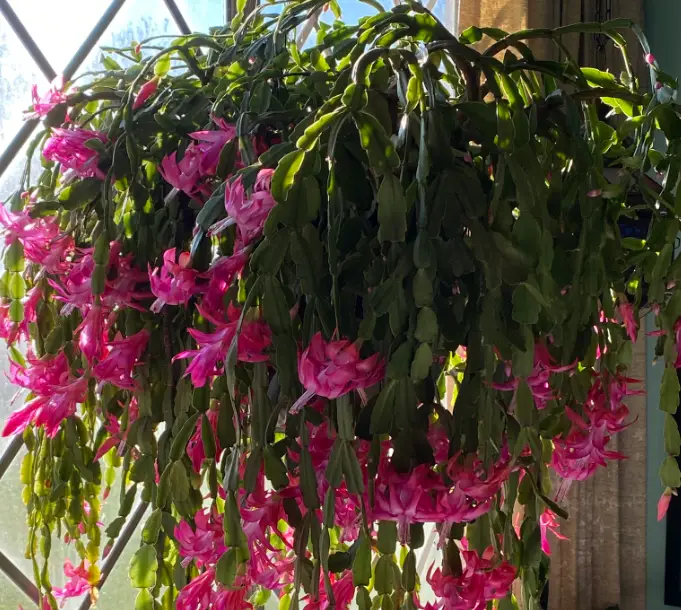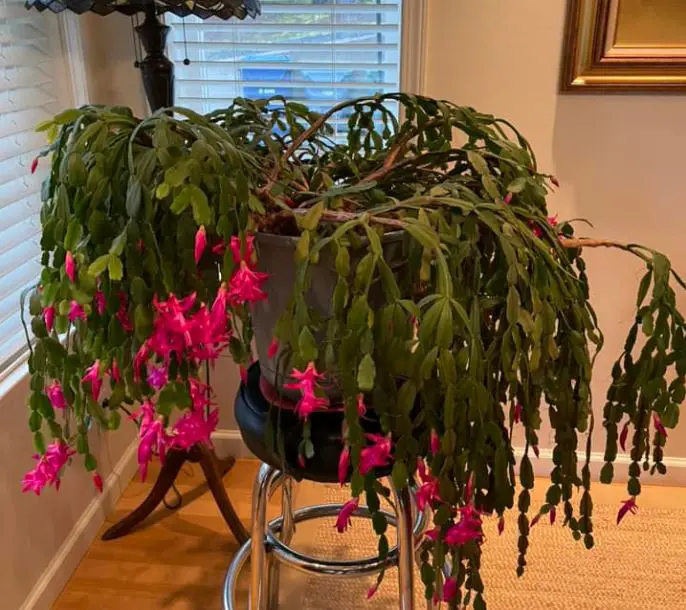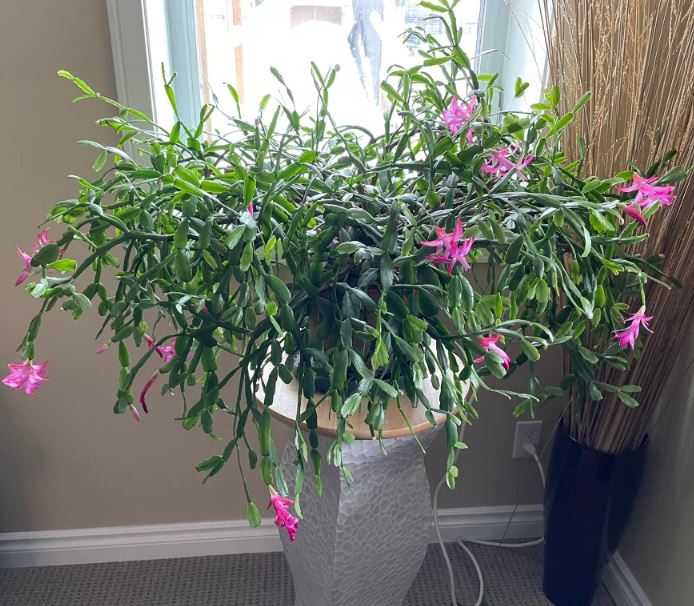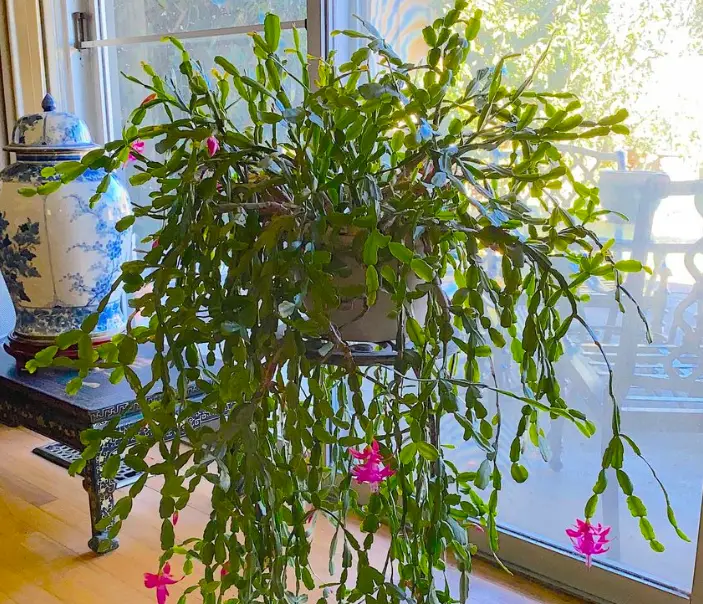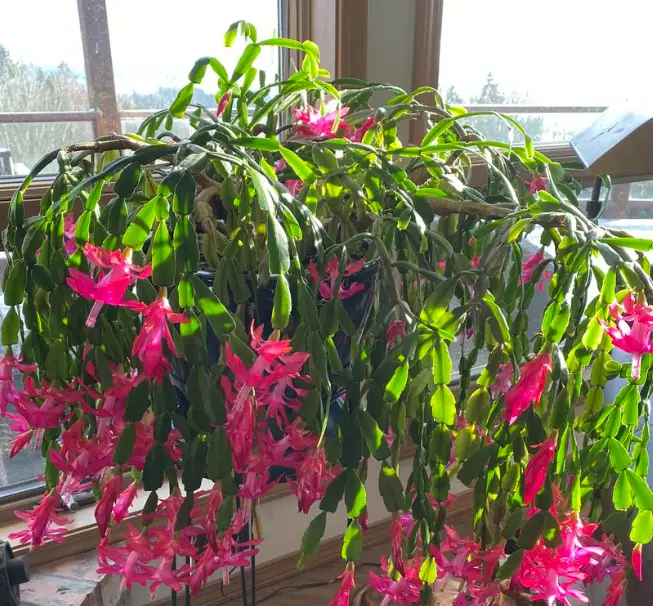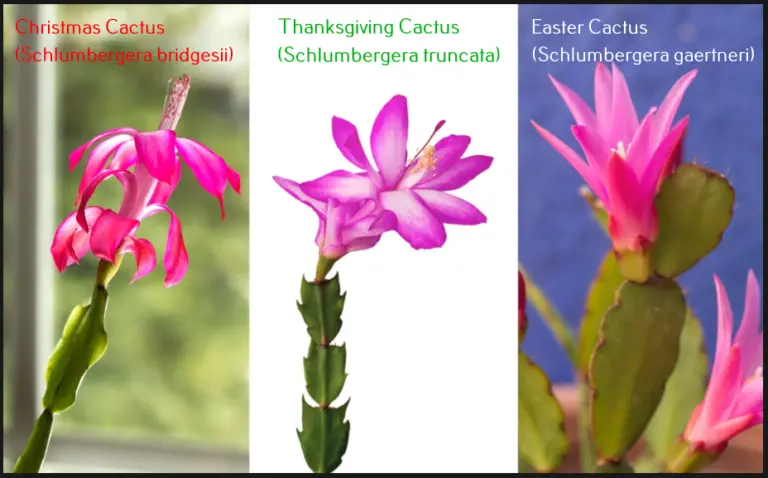Are Christmas Cactus Poisonous to Cats? What to Know
Cats and dogs are curious animals that love exploring their surroundings and won’t stop nipping at your houseplants, including your beloved Christmas cactus. This may cause many problems and diseases to the plant. But is a Christmas cactus poisonous to cats?
The Christmas cactus is considered non-toxic to cats and dogs, according to the American Society for the Prevention of Cruelty to Animals (ASPCA).
However, ingesting the plant materials in large amounts may cause stomach upset in cats and dogs. Further, pesticides and other chemical treatments used on the Christmas cactus plant can be toxic to your pets.
Are Christmas cactus Poisonous to cats or dogs?
Domesticated cats or dogs commonly nibble on houseplants out of curiosity or boredom. However, this should not be a cause for alarm, as the American Society for the Prevention of Cruelty to Animals lists Christmas cacti as non-toxic for dogs and cats.
However, you should be greatly concerned about your cat’s safety if you use a pesticide or any other chemical on your holiday cactus plant.
A cat may also get stomach upset after eating large amounts of fibrous plant materials, explains Margot Vahrenwald, owner of Park Hill Veterinary Medical Center in Denver.
It’s important to monitor your pet’s behavior and contact your veterinarian if you notice any digestive upset or discomfort symptoms. Constant moaning, stomach gurgling, retching, or vomiting indicates your cat is unwell.
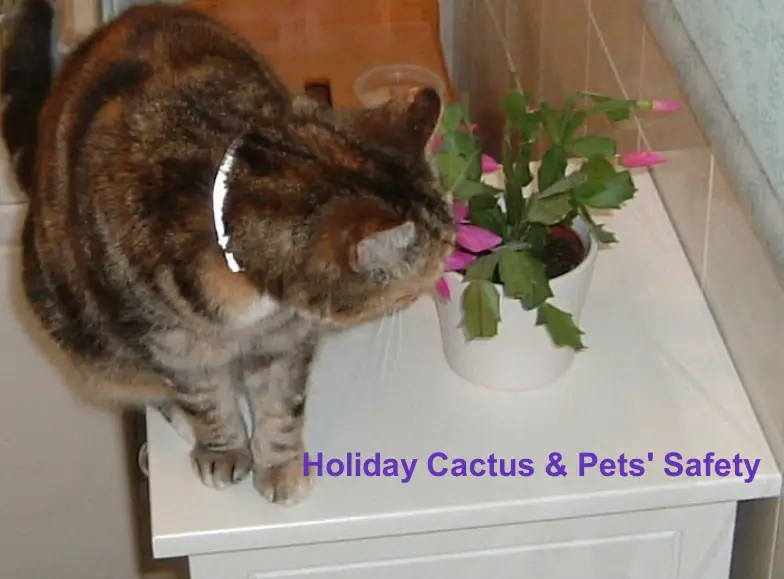
How to fix a cat-damaged Christmas cactus
Minor damages like scratches on the cactus stem can heal independently under the right care. A badly injured Christmas cactus may take longer to recover. The severely damaged roots or stems may attract fungal infections.
If the cat badly damages your Christmas cactus by breaking the stems off the plant, you can root the cuttings in water or soil to get new plants.
Obtain a healthy cutting from the plant, 3 to 4 segments, and place them in a cool, dry place for two to three days for the cut end to dry. It helps in preventing the cut from rotting.
Plant them an inch deep in a container filled with well-draining potting soil mix for cactuses. Enclose the pot in a plastic bag to maximize humidity and place it in a place that receives bright, indirect light.
Ensure the soil constantly remains moist and water only when the top inch of the soil feels dry to the touch. It will take six to eight weeks for the Christmas cuttings to root.
How to keep pets out of houseplants
Cats and dogs will always disrupt your houseplants as long as they access them. You may try the following hacks to safeguard your Christmas cactus against the cat:
- Make your plants inaccessible to the cat or dog: You can cage your plant in wire mesh panels or hang it from the ceiling or wall as long as it’s high enough for the pet to reach.
- Make the plant unappealing to pets: Cats won’t stand the smell of anything citrus. Create some lemon, lime, or orange juice solution and regularly apply it around the plant.
- Provide pets with their own plant: Create a cat garden with plants like Catnip, lemon balm, or zinnias; the feline won’t have time for your houseplants.
- Train your cat or dog to keep off the plants: Although it may take years, consistent training with treats as rewards will eventually work in keeping the pet out of your houseplant. You may need to seek help from a nearby cat training center.
- Provide a clean litter box for your pet: Cats naturally use dirt as a litter box and may use your planter for the purpose. You can avoid this by giving your cat a clean litterbox from a young age.
- Keep the pet busy: When bored, furry pets can do something nasty, like sinking teeth or claws into objects. Provide various toys away from your houseplant to keep your pets busy.
- Use a commercial cat deterrent: This should be the last resort for notorious cats or dogs. This ranges from sprays to motion-activated sensors that scare away cats with a sound or water spray.
Final Thought
While Christmas cactus is not poisonous to cats and dogs, you must keep them away from houseplant collections. There are other cacti highly poisonous to cats, and sometimes we grow them without knowing. They include: the Christmas tree, poinsettia, mistletoe, holly, amaryllis, and lilies.
Whether toxic or not, all plants should be covered when treated with pesticides, fertilizers, or any other chemicals to avoid direct contact with children and pets.
References:
- ASPCA: Christmas Cactus
- PetMD: Dangerous Winter Holiday Plants for Pets
My name is Diane M Lewik, and I am the founder of this website. I am a degree holder in plant biology from the University of California – Berkeley. Over the years, I have cultivated a vast collection of succulents and I have learned a great deal about how to grow and care for these unique plants. Feel free to ask any questions in the comment section below.
